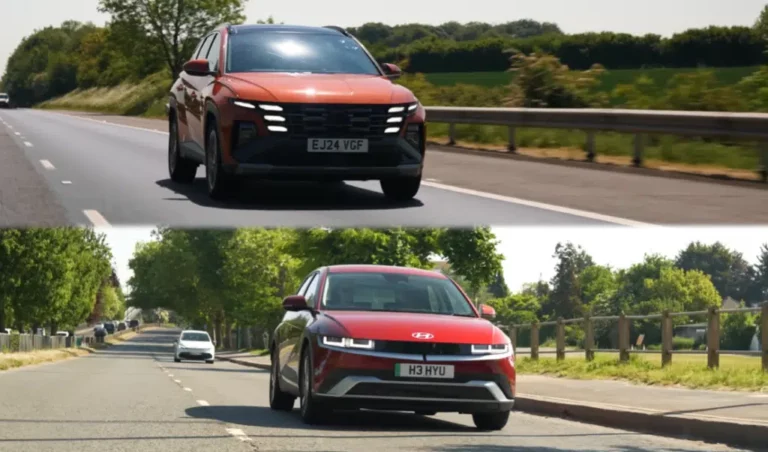Two British YouTubers from the What Car? YouTube channel conducted an experiment to compare the costs of driving a Hyundai electric car versus a Hyundai gas car over a 200-mile journey. They tested an electric Hyundai Ioniq 5 against a hybrid Hyundai Tucson, using public chargers and gas stations along the way.
The YouTubers found that the Hyundai Ioniq 5 required 62.05 kWh to charge from 32% to 100% at a public supercharger. The cost of electricity was approximately 97 cents per kWh, resulting in a total charging cost of around $60.31. The charging process took 45 minutes, with the car reaching 80% charge in just 15 minutes using a 215 kW charger.
In contrast, the Hyundai Tucson hybrid consumed 19.75 liters of gas during the same 200-mile journey, working at an efficient 49 mpg. With gas priced at $1.81 per liter, the total fuel cost for the hybrid came to $35.96, significantly cheaper than charging the electric vehicle.

However, the YouTubers noted that charging the Ioniq 5 at home would have substantially reduced the cost to approximately $22.61, potentially making it the more economical option.
The comparison highlights the importance of considering charging methods when evaluating the cost-effectiveness of electric vehicles versus hybrid cars. While the gas-powered Hyundai Tucson was cheaper for this particular journey using public charging, the cost dynamics could shift significantly with home charging.
Key Findings
- Hyundai Ioniq 5 charging cost: $60.31 (public supercharger)
- Hyundai Tucson fuel cost: $35.96
- Potential Ioniq 5 home charging cost: $22.61
This experiment underscores the complexity of comparing electric and gas-powered vehicles, as costs can vary widely based on charging or fueling methods and locations.



